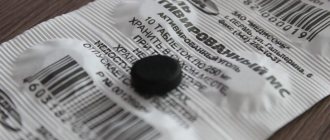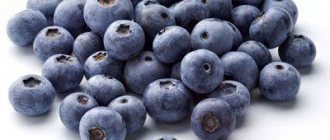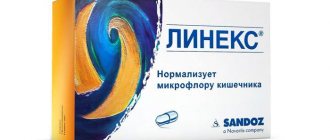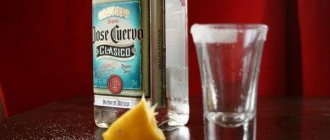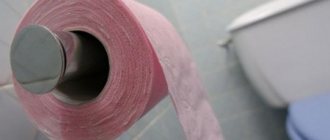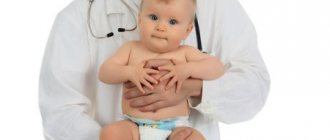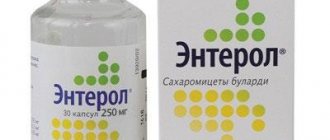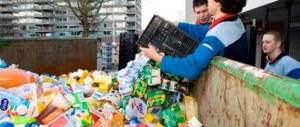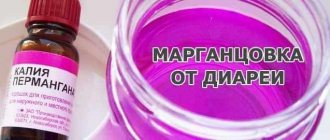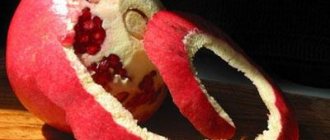Have you been struggling with GASTRITIS and ULCERS for many years without success?
“You will be amazed at how easy it is to cure gastritis and ulcers just by taking it every day...
Read more "
There is nothing more painful for parents than looking at a suffering child. Diarrhea is often accompanied by other unpleasant symptoms, which in turn create discomfort for the child. At the age of 4 years, children are most susceptible to bowel disorders. We’ll look at how to cure a child’s illness in our article.
Why does diarrhea occur?
Although diarrhea in a 2-year-old child is an alarming and unpleasant phenomenon, you should not immediately turn to medications to stop the disorder. A painful condition in a fidget, as well as nausea and vomiting, can serve as a unique response of the body to the attack of pathogenic bacteria. It is necessary to distinguish between symptoms that require emergency medical care and those that can be eliminated using folk remedies intended for children.
The liquid consistency of stool in a baby of the second or third year of life is often due to:
- eating disorders;
- food poisoning, infections;
- individual reaction to any products;
- irritable bowel syndrome;
- quantitative and qualitative imbalance of intestinal flora;
- acute pathologies.
Treatment of diarrhea should be preceded by a thorough analysis of the circumstances that caused it. The correct selection of medicinal products is the way to quickly restore the health of the little one.
Signs of dehydration
If your baby has frequent loose stools, accompanied by high fever and vomiting, it is important to monitor the baby’s condition and promptly replenish fluid levels in the body to prevent dehydration. Children are much more susceptible to this condition than adults because:
- the body contains more water;
- water-electrolyte exchange proceeds much faster;
- The neurohumoral and renal mechanisms of children in the second or third year of life are not yet perfect, and therefore cannot independently regulate the balance in the body during the period of illness.
Symptoms of dehydration in children with diarrhea should be distinguished, since in some cases you can cope on your own, but sometimes an urgent call to the doctor is required, since dehydration is dangerous for a weak child’s body.
Symptoms that you can cope with yourself:
- severe dryness of the skin, mucous membranes of the mouth and tongue;
- presence of viscous saliva;
- grayish skin tone;
- drowsiness and weakness;
- crying without tears, frequent restlessness of the baby;
- rapid pulse;
- retraction of the fontanel (in babies under one year);
- infrequent urination with small amounts of dark-colored urine;
- sunken eyes;
- constant thirst.
Symptoms that require immediate medical attention:
- constant crying of the child without tears;
- severe drowsiness;
- weight loss;
- cramps and muscle spasms;
- violation of skin turgor;
- marbled skin color;
- cooling of the extremities;
- severe sunken eyes;
- refusal to drink.
The degree of dehydration in children can vary:
- about a mild degree if the fluid loss is no more than 5%. This condition usually occurs at the onset of acute diarrhea with vomiting.
- The average degree is observed when the normal water volume of the child’s body decreases by about 10%. The condition occurs upon the onset of the second day from the appearance of loose stools, and may be accompanied by refusal to drink and hyperthermia.
- Severe dehydration indicates that the body has lost more than 10% of fluid. The condition appears against the background of severe diarrhea with incessant vomiting.
The main principles of getting rid of the disease
To cure diarrhea and protect the health of a two-year-old child, you must adhere to the following rules:
- Constantly feed your baby (preferably from a spoon) boiled water, decoctions, and compotes. To retain and replenish the fluid entering the body, use special liquids: Electrolyte, Regidron, Oralit, Gastrolit.
- During the day, use light and gastrointestinal-friendly meals.
- Use sorbents rather than bleed-stopping agents.
- “Dig to the bottom” and eliminate the root cause of the problem.
If the diarrhea is whitish, foamy, accompanied by fever, and the toddler’s condition worsens, you should contact a doctor as soon as possible.
Causes
Before you begin to eliminate the problem, you need to find out the cause of diarrhea. There are many reasons for the appearance of stool disorders, but most often the cause is an intestinal infection or poisoning.
In addition to the main reasons for causing loose stools, the following factors:
- Excessive consumption of age-inappropriate foods.
- Symptoms of various diseases (dysentery, dysbacteriosis).
- Lack of personal hygiene.
- Long-term course of taking antibiotics or other medications.
- Viral infection.
In any case, you need to see a doctor and take the necessary tests to make the correct diagnosis. Diarrhea in childhood is fraught with dehydration, which is dangerous for the child’s life, so treatment should begin as early as possible.
When products are to blame for a problem
The baby may suffer from pain in the tummy and diarrhea if the diet contains foods that are difficult to digest in the intestines. Liquefied stool is caused by:
- raw vegetables;
- fruits;
- fried;
- fatty foods;
- spicy foods.
In a 2-year-old baby, diarrhea becomes more intense if difficult-to-digest foods are poured with milk or sweet soda.
Useful information: When you can and cannot give antibiotics for diarrhea in children
Children under 3 years of age should be prohibited from the following products:
- mushrooms (any kind!);
- whole “nuts”;
- pork and goose meat;
- raw eggs.
If the carry-in was caused by errors in the preparation of dishes, then adjusting the menu will save the baby from the trouble that happened. Giving a child pills and mixtures will be unnecessary.
If liquid bowel movements are observed frequently (constantly), you should consult a doctor.
Are enzymes prescribed?
The use of enzymes should be under the supervision of a physician. Their use is justified if it is clearly established that the cause of diarrhea is inflammation of the pancreas or diarrhea has developed while taking antibiotics. The deficiency of certain enzymes is determined using a coprogram. The most well-known drugs that can be recommended for a two-year-old child include the following:
- “Pancreatin”;
- “Mezim”;
- “Festal”;
- “Frion”;
- “Pangrol.”
To stabilize the intestinal microflora, Hilak Forte is prescribed. For children it is indicated for diarrhea, flatulence or allergic reactions. The drug restores the acidity of the gastrointestinal tract, normalizes disturbed intestinal microflora, promotes the regeneration of damaged cells, and restores water and electrolyte balance. “Hilak Forte” is produced in drops. It is convenient for children to take it. A two-year-old baby can take from 20 to 40 drops at a time. It is necessary to take three meals a day.
If diarrhea is caused by infections
Since a two-year-old person is actively exploring the world, it is impossible to achieve complete hygiene. By introducing themselves into the digestive tract, pathogenic organisms negatively affect the intestinal mucosa. Inflammatory processes develop in it. The number of acts of defecation increases, the stool acquires a liquid consistency.
When observing children for pathology, take into account that if there are mucus particles in the stool, it is yellow or green in color, this may be a parasitic infection.
It is important to eliminate the root cause of the disease - get rid of parasites.
You should consult a specialist so that the condition does not worsen or intoxication intensifies. Doctors will conduct the necessary examination, take swabs and tests to identify the causative agent of the disease.
It is not always possible to cure the anomaly on your own. For some diagnoses, hospitalization is recommended for children. The need for this may arise:
- for dysentery;
- for salmonellosis;
- with giardiasis.
What are the dangers of dehydration?
In this condition, brain nutrition and general blood circulation are disrupted, as well as the protective function of the blood-brain barrier. If dehydration persists for a long time or is repeated frequently, the consequences may be the occurrence of diseases such as Alzheimer's or Parkinson's disease, multiple sclerosis, and obesity.
When dehydrated, blood thickens greatly, becomes viscous, and the lumens of blood vessels decrease, which increases the risk of blood clots. Often the result of dehydration is immunodeficiency chronic diseases, for example, scleroderma or bronchial asthma.
If diarrhea is caused by poisoning
There are often cases when diarrhea in a 2-year-old child is associated with poisoning from low-quality (spoiled) products. Please note that the symptoms of the malaise may be similar to other infectious lesions and masquerade as appendicitis.
It is advisable to show the child to the doctor, have blood, stool and urine tested, and, if necessary, conduct an ultrasound examination of the abdominal cavity. During treatment, you should strictly observe the drinking regime. Clean water will not only dilute toxins and remove them, but will also help restore water-salt metabolism.
Enterosorbents will help children cope with the passage. This is a series of pharmaceutical preparations capable of binding and retaining a variety of harmful substances.
Popular ones are:
- Enterosgel. The medicine contains silicon. Children from 1 year to 5 years are prescribed half a teaspoon three times a day.
- Smecta or Neosmectin. Before use, the sachet is dissolved in 50 ml of warm boiled water. You can add it to porridge or compote. Dosage – no more than 4 sachets/day.
- Polysorb . If a two-year-old weighs from 11 to 30 kg, you can give a teaspoon three times a day.
Useful information: Medicines and traditional methods for diarrhea in children over 3 years old
What to feed a 2 year old child with diarrhea
If you have diarrhea, you must follow a gentle diet. On the first day of illness, you can eat nothing at all or significantly reduce your usual portion. This is necessary to relieve stress on the gastrointestinal tract and liver. As soon as the condition begins to improve, you can increase the amount of food you eat.
When creating a menu, you should consider the following recommendations from doctors:
- You can offer dried bread or crackers (without spices and salt).
- You can't avoid salt completely. It is necessary to maintain water-salt balance.
- Products with a high content of pectin are needed. It can be bananas, but it is better to offer a baked apple.
- After normalizing intestinal function, protein foods will be beneficial. White meat turkey or chicken is recommended. But it’s better to cook steamed meatballs or cutlets. Eggs are allowed, but only boiled.
- Water, tea, compote are allowed without any restrictions.
Recipes from the folk treasury
If the baby’s frequent liquid bowel movements are not accompanied by severe symptoms, there is no fear of pathology; proven folk remedies will help.
What can you give your child to prevent it?
- Treatment solution . Mix 2 tbsp. spoons of sugar, 1 teaspoon of salt, 1 teaspoon of soda. Dissolve in 1 liter of clean water (boiled, cooled). If diarrhea persists, give the baby 2 teaspoons of water every 10-20 minutes.
- Pharmacy antiseptic mixtures from sage, blueberries, chamomile, cinquefoil, bird cherry, alder.
- Freshly prepared decoction of dried pear fruits.
- Sticky rice porridge (without salt) or thick rice water.
Medication therapy
For diarrhea, the following medications are recommended:
- The primary method of therapy is to take any saline solution. You can buy it in powder form at a pharmacy or prepare it yourself. This technique is preventive in nature, as it prevents dehydration. More often, a bag of this mixture should be dissolved in boiled, clean water, pre-cooled to room temperature. Effective remedies for diarrhea include Gastrolit, Regidron, Enterodes;
- taking a glucose-based solution;
- For diarrhea with fever, the child is given medication with paracetamol. If the fever bothers your one-year-old baby, you can put a suppository. Older children are given a suspension;
- Sorbent is considered the best and necessary remedy for diarrhea. It removes toxic substances. Such drugs include Smecta, Polyphepan, Polysorb, Neosmectin, Activated carbon;
- for diarrhea, symptomatic treatment is indicated, which includes taking Diarol, Bismuth, Imodium, Tanalbin.
If diarrhea is caused by a serious illness, the child will be hospitalized. Drugs that normalize intestinal microflora will help against dysbiosis:
- Acipol.
- Bifiform.
- Linux.
- Enterol.
- Bifidumbacterin.
In addition to the above remedies, probiotics are prescribed. If diarrhea is caused by an intestinal infection, antibiotics are indicated.
Such therapy should be supervised by a pediatrician. The child may be prescribed Nevigramon, Meronem, Kanamycin, TIenam, Ceftazidime.
Self-antibiotic therapy is contraindicated. The mistake of many parents is non-medical therapy with Levomycetin, which only worsens the child’s condition.
Additionally, the baby is prescribed enzymes that improve the process of digesting food. Such products include Digestal, Creon, Pankurmen.
If diarrhea is accompanied by allergies, therapy with antihistamines is indicated. When pain appears, take antispasmodics - Papaverine, Spasmomen.
Special diet for babies
Day 1 . A sick child is fed (in small portions!) puree soup based on cereals (oatmeal, buckwheat, rice). They serve porridge (without oil) from the same cereals.
Day 2 . Add dried white bread, boiled potatoes (without butter), biscuits.
Day 3 . Add applesauce, low-fat cottage cheese, and bananas.
Day 4 . The diet is supplemented with fresh low-fat biokefir without sweeteners.
Day 5 . If your health improves, you can offer your child steamed veal, chicken, and turkey cutlets.
Symptoms
Symptoms of diarrhea in a child include:
- The first sign is a significant increase in the number of bowel movements. In a one-month-old baby, this sign is not indicative, since the baby defecates after each feeding. But if the child is one year old, you can suspect a problem after the third bowel movement that day.
- Increased gas formation, which is combined with increased intestinal motility.
- Change in stool color. It can become yellow, green, very light (almost white).
- The appearance in the stool of a large amount of liquid, mucus, undigested food particles, foam, blood, pus.
- Sometimes the child may complain of severe nausea, causing him to vomit.
- The appearance of pain and cramps in the abdomen.
- In severe cases, symptoms of intoxication appear - high fever, chills, pale skin, weakness.
How to persuade a child to take medicine?
Most children of preschool and primary school age are not eager to take medications, fearing their bitter, nasty taste. But diarrhea needs to be treated. Here are a few tricks for parents to easily persuade them to feed their child a medicinal product:
- Turn taking pills into a game. For example, offer them to your favorite teddy bear or come up with a funny tale about the warrior Tablet and his battle with harmful bacteria.
- Explain in detail why you need to take medications. Older children are more willing to ask questions about health and accept logical explanations.
- Don’t get angry at a disgruntled baby who spits out medicine. You need to react calmly and kindly, and persuade him to swallow the pill. You can’t force medicine, especially on a crying baby. He might choke on the pill.
- If the pills are bitter, do not deceive the baby, otherwise next time he will not believe you.
- You should not allow your baby to play with medications. He should receive them from mom or dad or from the attending physician immediately before the appointment.
It is not advisable to give whole tablets or even halves to a baby under three years old - he may choke. Usually they are ground and diluted with boiled water or milk mixture. It is better not to use juices and other sweet drinks - they can react with the drug and cause negative consequences.
Anti-diarrhea medications recommended by your doctor should be kept in your first aid kit just in case. But to avoid having to use them, monitor your baby’s diet and make sure he washes his hands with soap. To prevent food poisoning, it is also recommended to take zinc supplements.
Application of oak bark
Oak bark is a valuable plant material that contains a large amount of tannins. Their astringent properties eliminate loose stools in the shortest possible time. Oak bark also has anti-inflammatory and antibacterial effects.
. Therefore, the bark will help with diarrhea caused by both infection and overeating.
To prepare the infusion, you can use the following recipe. A teaspoon of dried raw materials is poured with 550 ml of boiling water. The liquid is infused for 8 hours, after which it must be drunk. Young children are given the infusion 1 tablespoon every hour.
Prevention
To prevent intestinal disorders in young children, it is important to adhere to the following basic recommendations:
- teach your child from an early age to personal hygiene, washing hands with soap after using the toilet;
- handle children's potty and toys well;
- avoid eating stale food;
- wash and pour boiling water over fruits and vegetables;
- monitor the cleanliness of the child’s clothes;
- iron all children's things with a hot iron.
Adults should be especially attentive in the summer season, when the risk of “catching” an intestinal infection increases significantly. All year round, it is important to give your baby clean drinking water (preferably boiled), and to prevent dirty objects picked up from the ground from getting into the baby’s mouth.
First aid for loose stools
Regidron
The good thing about this product is that it is suitable even for the youngest patients. The main thing is to be able to give the child the solution to drink. It has a specific taste, so children are reluctant to accept it.
If you don’t have a pharmacy medicine on hand, prepare a homemade equivalent. To do this you will need:
- a tablespoon of sugar;
- a tablespoon of salt;
- a glass of cool water.
The recipe is simple. You need to dissolve the ingredients in the liquid, and then give the patient a couple of sips to drink.
After 10 minutes, repeat the procedure.
If after the second dose the infusion “settles” in the stomach and does not provoke an attack of vomiting, again resort to the home remedy after 10-15 minutes.
Regidron is taken fresh. There is no point in storing it for more than an hour.
.
Saline solution for diarrhea
There is a different recipe for different age groups. For those who were recently born, a solution of 200 ml of warm water and 1 teaspoon of salt is suitable. Adults should increase the amount of salt to 2 tablespoons.
Take the product every 1-2 hours, 50-70 ml.
If there is no improvement in your condition after a day, seek help from your local doctor.
Rice congee
The method will help cope with gas formation, help relax the walls of the stomach, and relieve cramps. Treatment can be used by people of all ages, including infants.
Ingredients:
- 0.5 l of water;
- a tablespoon of rice.
Rinse the rice, throw it into boiling water and simmer over low heat. 40-45 minutes is enough. Pour the water into a glass and cool.
The decoction will need to be given to the patient every 2 hours, 40-50 ml.
For small children, the dosage is adjusted downward
.
Pomegranate
The method has age restrictions. It is not suitable for babies
.
Ingredients:
- 1 tablespoon pomegranate peel;
- a glass of boiling water.
The cooking method is simple. Pour water over the crusts, cover with gauze, and place in a dark place for several hours. If you use a thermos, the infusion will “ripen” even faster. In just an hour, the drink will be ready to drink.
It should be taken in small portions 3-4 times a day.
Treatment of diarrhea with pomegranate should be done with caution. It is not recommended to take the infusion for longer than 2-3 days.
Walnut
Ingredients:
- 1 walnut leaf;
- a glass of boiling water.
Fill the sheet with water. Let the broth brew for 10 minutes and offer it to the patient.
The product should be used fresh, without additives.
Potato starch
You will need 1 teaspoon of starch and 1 tablespoon of cold boiled water. Mix the ingredients. The infusion is ready for use.
Infusion of bird cherry berries
Don’t know how to treat your son or daughter? Take 5 bird cherry berries and throw them into boiling water. Boil over low heat for half an hour. Strain the broth and give it to the little patient.
You should use the product 2-3 times a day.
Serpentine root
The plant is non-toxic and contains tannins.
The feasibility of using the root to treat infants has not been proven, but there is no reason to abandon this method of combating signs of poisoning.
The product is prepared in the following way:
- grate the root on a coarse grater;
- Pour a teaspoon of the crushed plant into a glass of clean water;
- mix thoroughly, place on low heat;
- bring the mixture to a boil, remove and let the product brew;
- strain;
- Make the patient drink a tablespoon of zi decoction 15-20 minutes before eating or taking medication.
Other means
Apples
Grate the fresh fruit. Give the resulting puree to your baby. Repeat the procedure every 2 hours.
Burnet root
Take 1 tablespoon of chopped roots and fill them with water. Place on low heat for 25-30 minutes. Strain.
The infusion should be given to the patient when he is ready to eat. About 10-15 minutes before meals. The course of treatment is several days. Moreover, you should not suddenly stop taking it because you feel better. It should be taken for several days even after complete recovery.
Oak bark
Diarrhea will go away if you prepare a decoction of oak bark. Pour 250ml water into a shallow pan and add a tablespoon of roots. Boil the infusion and let it brew. After an hour, strain.
The product is taken in small portions every 1-2 hours.
Chamomile
For diarrhea, chamomile is enemy number 1. It removes toxins and helps eliminate bloating.
To make tea, you will need pharmaceutical chamomile. Brew it in a teapot and give it to a sick person.
Chicory
Put 1 tbsp. spoon into a jar, pour boiling water over it. Close the container tightly and let the drink brew for half an hour. Then strain and take a small spoon orally 5-7 times a day.
You can use freshly cut flowers of the plant. Just take not one, but two spoons of chicory.
Bananas
Unripe fruits will help stop stomach problems. To relieve symptoms of poisoning, crush the fruit to a pulp and feed the patient the puree. Give him freshly squeezed juice to drink.
Potassium permangantsovka
A weak solution should be drunk 70-100 ml 2-3 times a day. In this case, you should refrain from using activated carbon. Its combination not only with potassium permanganate, but also with sugar is not permissible. Therefore, the patient should refrain from eating sweets and fruits containing large amounts of sucrose.
Enemas
, administered rectally, helps to neutralize the intestines. High speed of action plays a role. The result is instant
, since the liquid does not have to travel to the source of infection.
When using potassium permanganate internally, you need to be extremely careful and careful. The concentrated product has a negative effect on the mucous membranes. Using a strong solution will lead to burns and disruption of microflora. Acceptable shade: slightly pinkish. Dilute the granules until you get the desired color.
The temperature of the liquid should not be high or low. Optimal option: 35-40 degrees. The volume of injected solution is determined based on the patient’s age.
Small pears - microenemas - are suitable for children.
Iodine
Grandmothers insist that iodine is extremely effective in combating intestinal disorders. Medicine is skeptical about this statement. In any case, the method is not relevant for preschoolers. Only teenagers can resort to it. To do this, they will need 100 ml of water and 5 drops of iodine.
Alder cones
Bring a liter of water to a boil, add 50 g of cones. Cook over low heat for 20-30 minutes. Strain. Take a dessert spoon 3-5 times a day.
Herbs
- Wormwood. Brew a teaspoon of wormwood. Take the infusion 2-3 times a day, a teaspoon. It is better to do this 15-20 minutes before taking food or medication.
- A mixture of marshmallow root, rowan and St. John's wort. Take 3 parts St. John's wort, 2 parts marshmallow root and 4 parts rowan fruit. Pour boiling water so that the water rises 2-3 fingers above the mixture of herbs. Close the container tightly and place it in a cool place for an hour. After 60-70 minutes, strain. The infusion is ready. Take it 3 times a day, a tablespoon.
Blueberry
- Eat fresh blueberries. Eating 3-4 berries a few minutes before meals will help stop vomiting and diarrhea.
- It is allowed to eat dry fruits. The norm for a schoolchild is 200-300 grams per day.
- Prepare an infusion of dried flowers. Take 5 tsp. dried flowers, 0.6 liters of clean water. Boil for 5-10 minutes. The baby should take a teaspoon 3-4 times a day.
